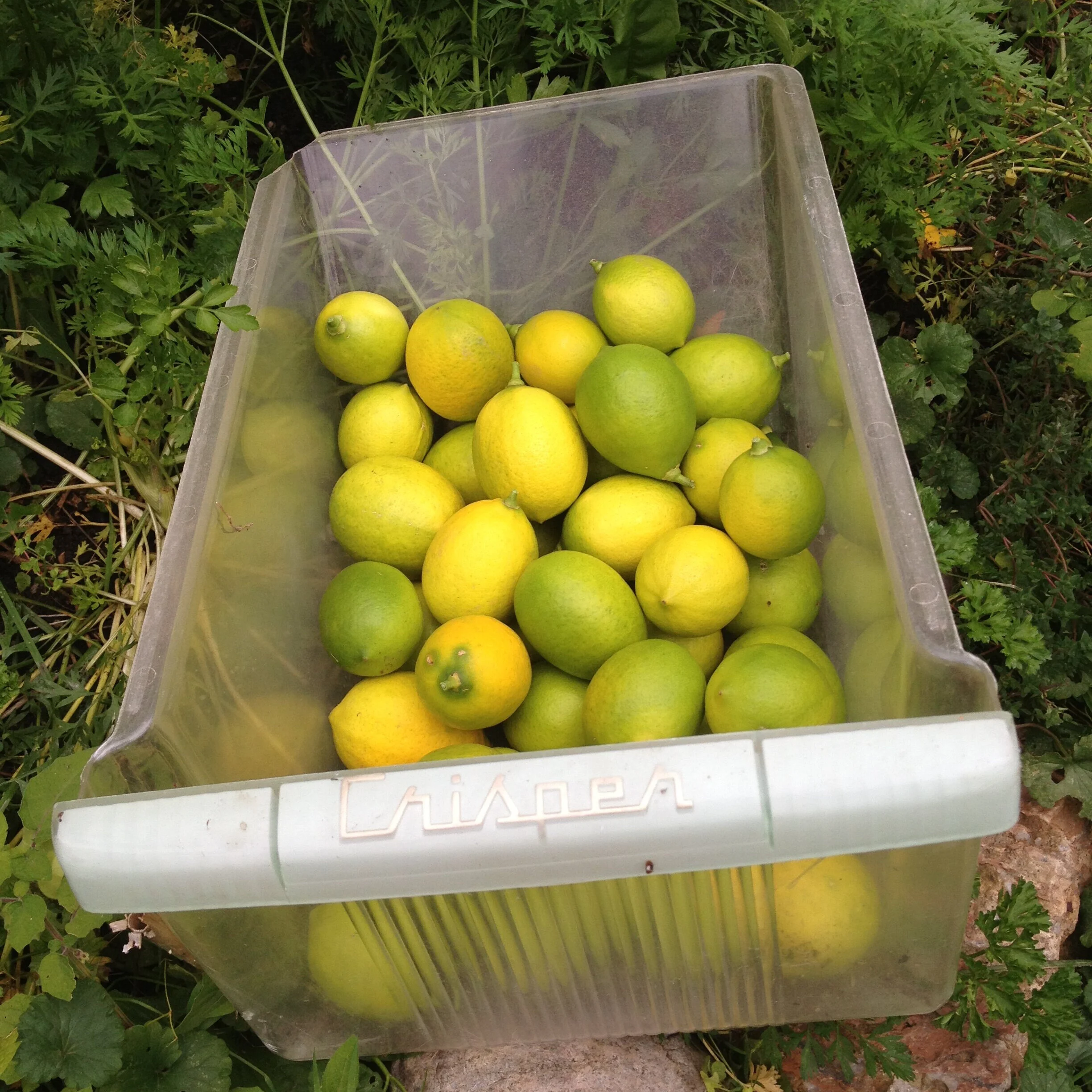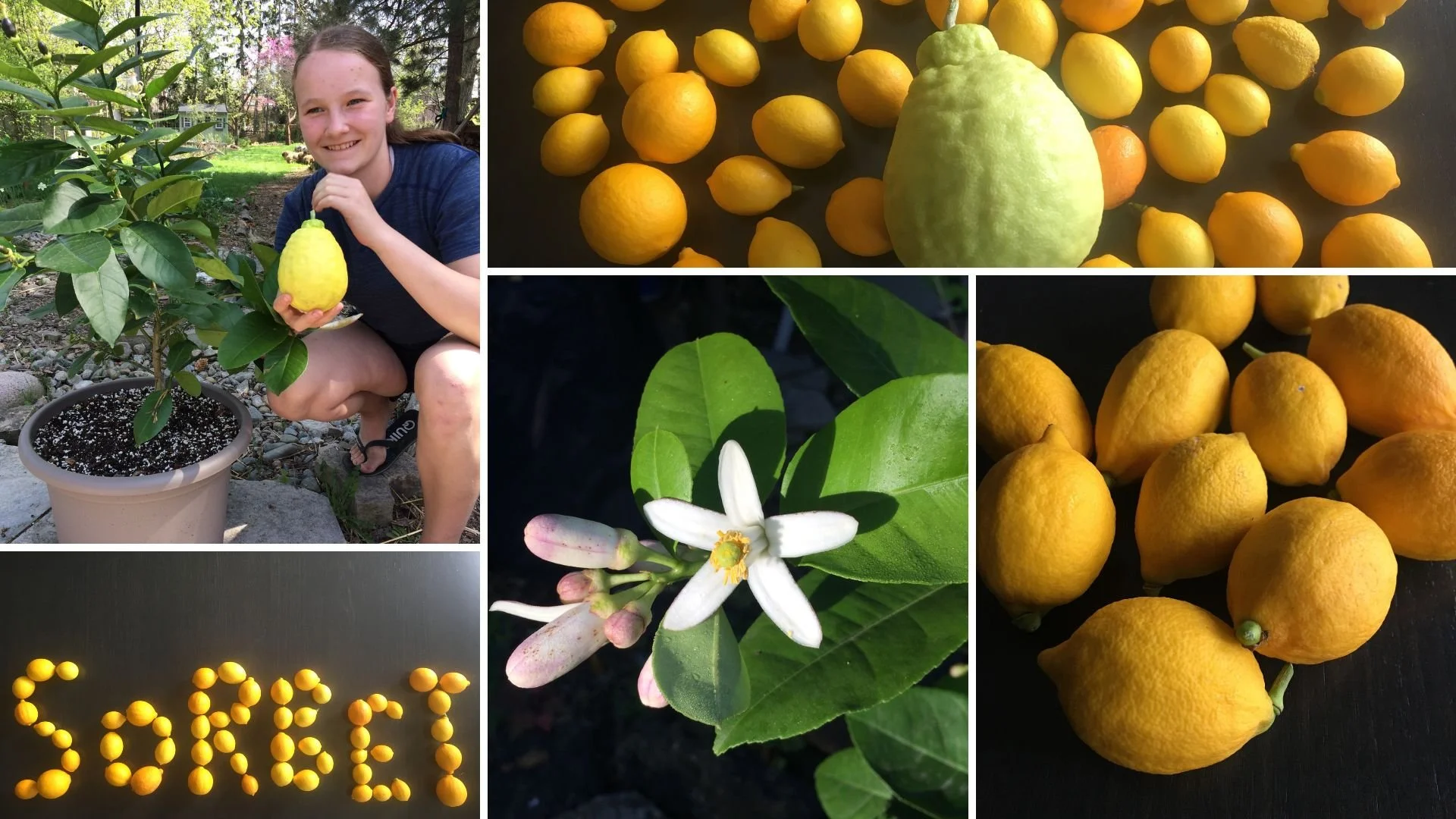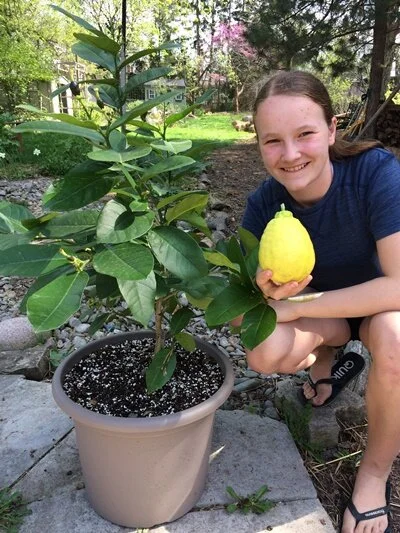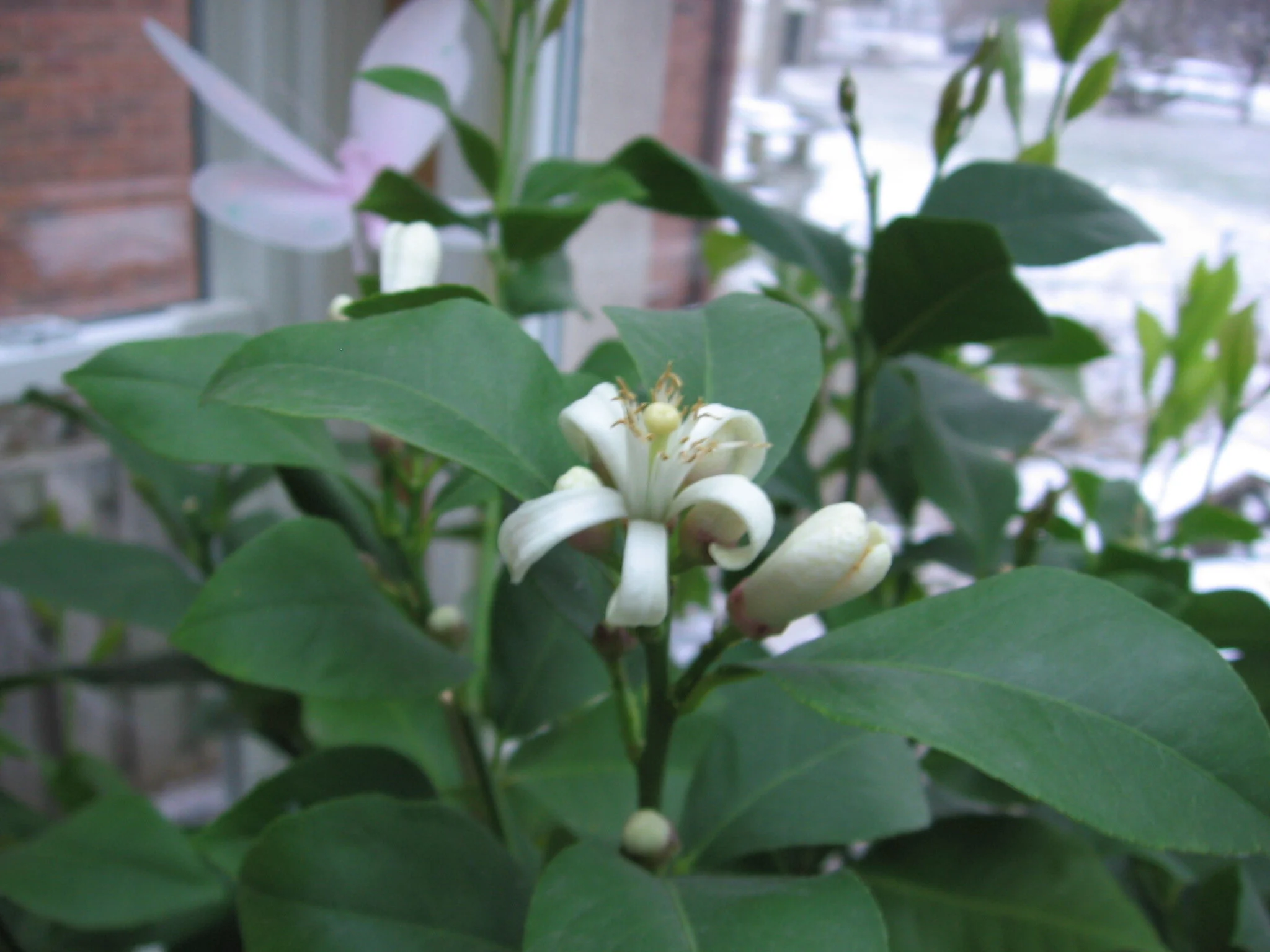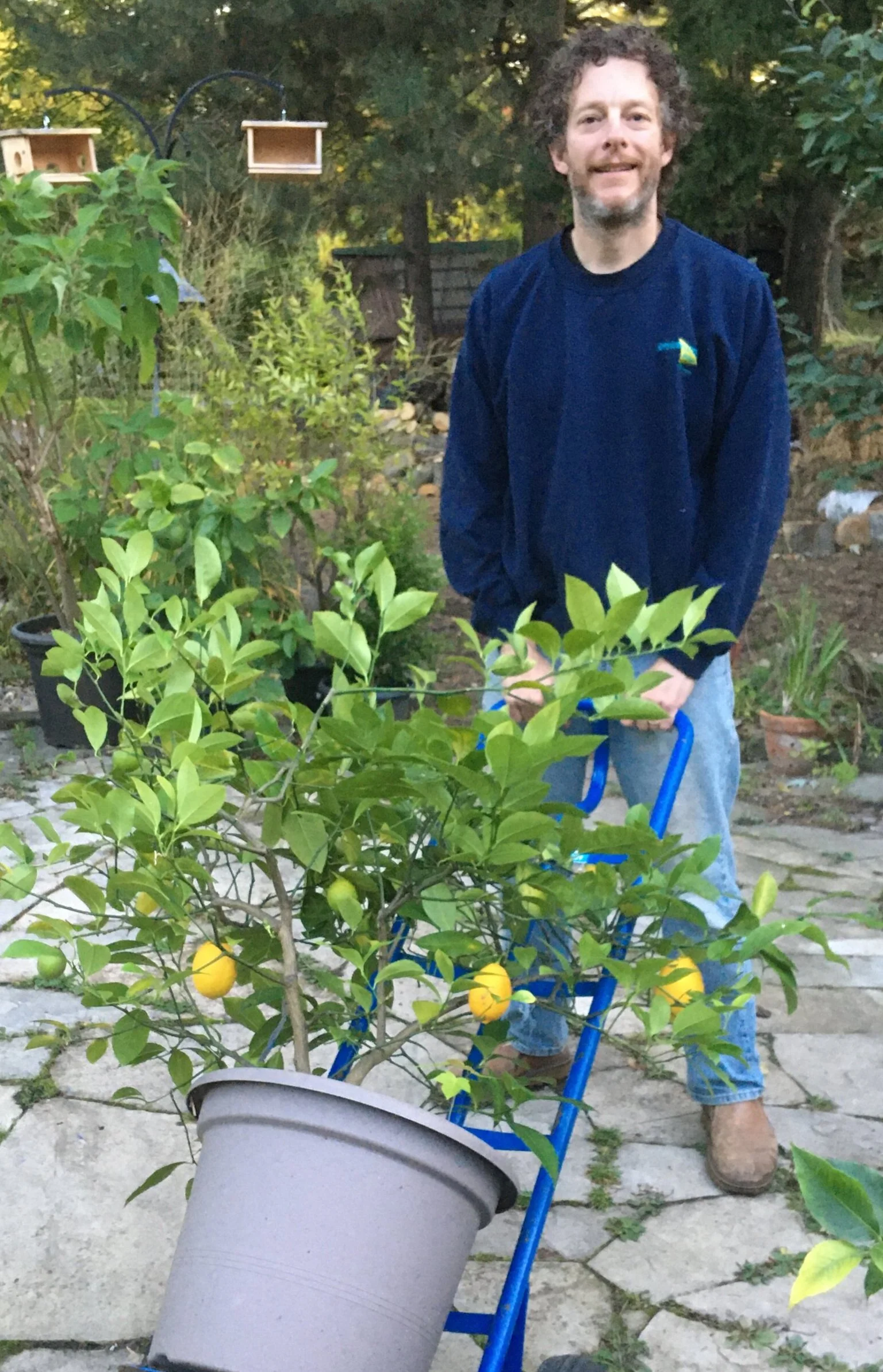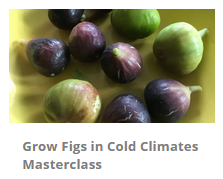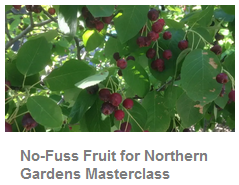
6 Reasons to Grow a Lemon Tree
You can easily harvest your own lemons if you grow a lemon tree in a cold climate. Here are 6 reasons to grow lemons in areas they don't normally survive.
By Steven Biggs
You CAN Grow Lemons Somewhere Cold!
Yes you can grow citrus trees. Even in places where they don’t normally survive the winter.
And I think that the best citrus for cold-climate gardeners to start with is a lemon tree.
There are many ways to successfully keep lemon trees alive over the winter.
You don’t need a greenhouse. And you don’t need a bright, sunny window.
Here are my Top 6 reasons to grow a lemon tree in a cold-climate garden.
1. Lemon Trees are Forgiving
As a student I worked at a small U.K. nursery that had the U.K. National Collection of citrus trees. I brought home a couple of small Meyer lemon trees in my suitcase at the end of that summer.
6 Reasons to Grow a Lemon Tree in a cold climate. A Toronto lemon harvest!
Then those lemon trees languished for years. I was a student and moved around a lot, so they went from fluorescent lights to dimly lit apartment windows. It wasn’t until I moved into my first house that I started to pay attention to my lemons.
When one of my now knee-high Meyer lemon trees bore over 50 lemons in one picking — the small tree was so laden with fruit it looked like it was doing yoga stretches — I was hooked!
But until then, that lemon bush withstood a decade of me not knowing what I was doing.
Find out How to a Grow Lemon Tree Indoors (That Actually Produces Lemons)
2. Lemon Trees are Cold-Hardy
When we moved from our bungalow to a house with an old sunroom that stayed just above freezing over the winter, my lemons were happier than they had ever been. The cool winter temperatures suited them. There were fewer insect pests, and when spring came, those trees flowered as they had never flowered before.
“One of my now knee-high Meyer lemon trees bore over 50 lemons in one picking!”
3. Lemon Fruits Ripen in Moderate Climates
While Bob grows lemon trees outdoors, he grows oranges and other “sweet” citrus in a greenhouse. Lemons don’t need this extra heat to ripen.
Lemons ripen in climates too cool to properly ripen other citrus.
Canadian citrus expert Bob Duncan lumps citrus into two broad groups: “sweet” citrus such as oranges and grapefruit, and “acid” citrus such as lemons and limes.
This distinction is very useful for cold-climate gardeners to understand because sweet citrus need a sustained high summer heat for sugars to develop in the fruit. Acid citrus, on the other hand, doesn’t need sustained heat to ripen.
Bob lives in the Pacific North-West region of North America, which has a moderate climate. To get his sweet citrus to ripen, he uses an unheated greenhouse. The greenhouse is for additional summer heat — not because of winter hardiness!
BUT THE LEMONS — an acid citrus — don’t need the greenhouse to ripen, even though the summer temperatures are not hot where he is. “With lemons, they don’t need as many summer heat units,” Bob explains. (“Heat units” is a concept often used in agriculture. It considers daily maximum and minimum temperatures and the heat that a plant experiences during a growing season.)
When you consider its combination of cold-hardiness and ripening requirements, lemon makes a very practical citrus for the home gardener in a cold climate.
Keep Your Lemon Tree Through the Winter
And enjoy fresh homegrown lemons!
4. There’s a Thrill in Pushing Boundaries
You may be surprised to learn that there is a history of lemons being grown way beyond the boundaries of where they could survive without human help.
The lemon has a bit of a cold-climate pedigree!
My daughter with a Ponderosa lemon tree and a lemon harvested in the spring. Note the smaller lemons that will ripen later in the year.
Time and again gardeners and farmers in areas that would normally be too cold for lemon cultivation have devised ways to grow lemons.
If you are interested in a delicious mix of history, horticulture, cooking ideas, and travel, check out The Land Where Lemons Grow: The Story of Italy and Its Citrus Fruit. Author Helena Attlee explores the history of citrus fruits in Italy, including some cool-climate adaptations. Of course, I didn’t read the book in the order it’s written. I went straight to the chapters about Amalfi and Lake Garda, which have a history of growing lemons in sub-optimal climates.
If growing a lemon tree in a cool climate sounds like a lot of bother, well, honestly … it is. But maybe you’re like me and enjoy the challenge of growing something that’s not supposed to succeed in your climate. You wouldn’t be the first.
5. Lemons are Versatile in the Kitchen
Some people are surprised to hear that I think it’s worth the effort of growing lemons even though they are widely available in supermarkets.
But trust me, it’s worth the effort.
Lemons are best when they are fresh. It’s no fun trying to zest or juice a shrivelled, dry lemon that has sat out too long. The easiest way to store lemons so that they stay fresh is on the tree—they last a long time on the tree!
In February I can pick a handful of Meyer lemons from the trees stowed in my greenhouse and make sorbet. The juice and rind of this lemon have a unique flavour (often described as a cross between a mandarin orange and a conventional lemon) that really can’t be beat.
There’s Also the Zest
I’ll also zest a Ponderosa lemon into our chicken kebab marinade. Again, a unique taste I can’t buy at the grocery store. The Ponderosa lemon zest is a bit lime-like to my taste buds. (It’s no surprise that it has a unique flavour because it is thought to have some citron, another citrus, in its ancestry.)
Don’t Forget the Leaves
When you grow your own lemon trees, you can harvest more than just the fruit: Mid-winter I will grab a few lemon leaves to wrap around kebabs that I’m cooking on the grill. Lemon leaves are fragrant when bruised or torn, and impart nice flavour into a kebab while keeping it moist.
Grow a lemon tree for the fragrant flowers that come out at the same time that fruit is ripening on the plant.
6. You Get Flowers and Fruit at the Same Time
Some citrus plants flower once a year. Bob Duncan’s oranges, for example, bloom once, in the spring.
Not Lemons! Lemons yield fruit at different stages of maturation and flowers all at same time.
Even after the main spring bloom is over, you can still enjoy the fragrance of the flowers. With lemons, home gardeners can enjoy harvesting fruit and the fragrance of blossoms year-round.
Good for the patio: good for the kitchen garden!
Keep Your Lemon Tree Through the Winter
And enjoy fresh homegrown lemons!
Lemon + Citrus FAQ
Do lemons grow on trees or bushes?
Both. How the plant grow depends on two things:
How you prune it.
Natural growth habit of the plant. (Meyer lemons have more of a bush-like growth habit.)
Are there indoor citrus trees?
The conditions in centrally-heated homes tend to be warmer and drier than is ideal for most citrus. You can still grow potted citrus in a bright window — but a cool bright sunroom or greenhouse is better.
For more about how to grow indoors, read this article about how to grow a lemon tree indoors.
How to you feed citrus trees?
Read this article about how to grow a lemon tree indoors.
Can you grow oranges in Canada?
You can grow oranges in a greenhouse, or as a potted plant that gets winter protection.
Want More Lemon-Growing Articles?
Meyer Lemon Sorbet Recipe
By Steven Biggs
Meyer Lemon Zest is a Big Part of this Sorbet
If you are growing a Meyer lemon tree and are wondering what to make, here’s a great way to enjoy the unique flavour of Meyer lemons: Meyer Lemon Sorbet.
I included this family favourite in my book Grow Lemons Where You Think You Can’t: We make it using our own homegrown lemons.
This recipe uses both the juice and the fragrant zest.
If you’re growing other citrus, you can use this same recipe to make your own sorbet. For sweeter citrus, you might want to use a bit less sugar. For other citrus such as yuzu, you might add a bit more sugar.
Find out more about yuzu, a fragrant citrus that’s a great container plant for a home garden.
Looking for More Lemon Ideas?
Here’s another lemon recipe: Mussels Gremolata with Lemon.
For more recipes and information about growing potted lemon trees in cold climates, go to the Lemon Home Page.
More on Growing Lemons
If you want to grow a potted lemon tree (that actually fruits) in a cold climate, below are a couple more resources to help you on your journey. I grow lemons and other citrus here, in Toronto, Canada. (My oldest potted lemon tree is from 1967!)
Book: Grow a Lemon Tree in a Cold Climate
Course: How to Grow a Lemon Tree in a Cold Climate
Keep Your Lemon Tree Through the Winter
And enjoy fresh homegrown lemons!
Watering Lemon Trees
By Steven Biggs
Watering is the #1 Issue for Lemon Trees
In this excerpt from my book Grow Lemons Where You Think You Can’t, I talk about watering lemon trees:
How often you water your lemon depends on your soil mix, pot type, pot size, plant size, the weather, and if the plant is growing or dormant.
“I consider overwatering to be the number one issue,” Bob Duncan says as we chat about the problems he most often sees with lemons.
If the soil is constantly soggy — lemons hate soggy soil — the roots rot, which will eventually kill the plant.
How Much Water?
Watering is the number one issue for lemon trees.
When watering a potted lemon, apply enough water so that water comes out the drainage holes at the bottom of the pot — that’s when you know you have given it enough water. The other benefit to having water come out of the drainage holes at the bottom is that this also flushes out excess salts.
Another important watering consideration is that the lower soil in the pot remains more wet than the soil at the top — something you won’t be aware of unless you take the plant out of the pot. Don’t decide to water based only on how dry the top of the soil feels. Looks can be deceiving.
You want to give the plant time to use up the moisture in the bottom of the pot but not leave it to the point where the soil is too dry.
Once you get the hang of it, it’s not difficult. The following considerations will help you decide if it’s time to water:
Keep Your Lemon Tree Through the Winter
And enjoy fresh homegrown lemons!
Knowing When to Water
In the summer, when the lemon is growing, it will need regular watering.
Your lemon will still need some water in the winter, even if it’s not growing much. That’s because lemons are evergreen — they keep their leaves — so the plant will continue to lose some water through the leaves. (If you upset them, however, they might drop their leaves.)
I like Bob’s watering lingo for lemons stored in a cool place over the winter: “Keep them on the dry side of moist.”
If the pot is small enough, with a little practice you’ll be able to tell if your lemon needs water just by picking it up and feeling the weight of it.
If in doubt, stick your finger into the soil.
Don’t forget: The type of pot that you have affects how often you have to water. Soil in unglazed terracotta pots dries out more quickly than soil in plastic pots.
In summary: Don’t water a little bit each day!
More Lemon-Growing Information
Lemons: Articles and Interviews
Drop by the lemon home page for more articles and interviews to help you grow lemon trees at home.
Here’s a chat with a lemon expert to help you grow more lemons:
Lemons: Book on Lemons in Cold Climates
How Cold can Lemon Trees Get?
By Steven Biggs
Overwintering Lemon Trees
There are many ways to overwinter lemon trees, because they tolerate colder temperatures than many people realize.
In the picture below, I’ve loaded up a potted Meyer lemon plant to move into a protected area for the winter.
In the beginning, I used to grow it in the kitchen all winter.
Then, I started leaving it in the dark, cold garage for the winter.
These days, I put it in a greenhouse that I keep just above freezing.
Wondering what to do with a potted lemon tree for the winter? In this excerpt from my book Grow Lemons Where You Think You Can’t, I talk about how cold-hardy lemon trees are.
MY LEMON TREES DID VERY WELL when I moved into a house with an old sunroom that stayed just above freezing in the depth of winter.
There are many options for overwintering lemon trees in cold climates because they tolerate cold.
Sadly (for me), the dilapidated sunroom succumbed to a house renovation and my precious lemons were banished to an insulated garage for the winter. Normally, I kept an electric heater in the garage that I could flick on if the temperature plummeted.
But while we renovated, there was no power to the garage, and during a particularly cold spell, the temperature inside the garage dropped well below freezing.
I was heartbroken to think I’d lost my lemons.
Happily, they survived. Only a few branch tips died. For plants that I associated with Mediterranean climates,
I was delighted to learn that lemons are amazingly cold tolerant!
Many factors determine cold hardiness
It’s not an exact science.
For example:
Young plants are more tender.
Fruit and young shoots will be affected before older, woodier stems.
If the plant is already dormant from cool temperatures, it can better withstand cold than an actively growing plant.
With grafted lemon plants, some rootstock are more cold-tolerant than others.
Keep Your Lemon Tree Through the Winter
And enjoy fresh homegrown lemons!
Citrus expert Bob Duncan of Fruit Trees and More on Vancouver Island says to remember the temperature at which the fruit freezes.
The MOST Important Temperature to Remember
When I asked citrus guru Bob Duncan from the nursery Fruit Trees and More about lemon hardiness and minimum winter temperatures, he stopped me and took me back a step, saying:
“With lemons the fruit is on the tree in the winter. The question to ask is ‘What temperature does the fruit freeze at?’”
Bob went on to explain that the fruit of citrus is at risk at anything below -3°C (27°F).


